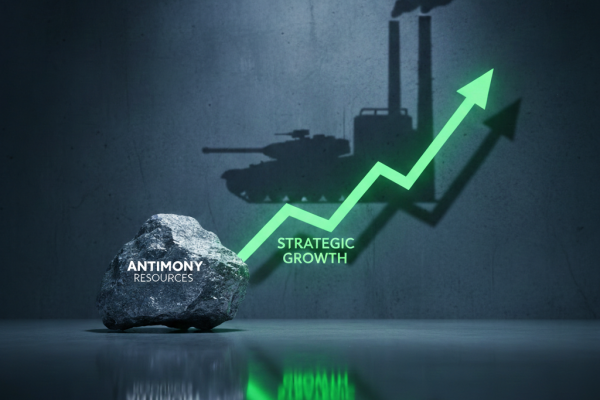June 29th, 2022 | 11:44 CEST
First Hydrogen, Daimler Truck, Mercedes-Benz - Will the EU Parliament's exit from combustion engines provide the next boost?
A few days ago, the EU Parliament decided to phase out combustion engines in cars and small commercial vehicles by 2035. The approval of the individual member states is still required to adopt the new directive. Although there are currently still disagreements within the German government as to whether Germany should agree to the ban, the directive can be passed with binding effect by a qualified majority even if Germany abstains. What impact would such a ban have?
time to read: 3 minutes
|
Author:
Carsten Mainitz
ISIN:
First Hydrogen Corp. | CA32057N1042 , Daimler Truck Holding AG | DE000DTR0013 , MERCEDES-BENZ GROUP AG | DE0007100000
Table of contents:

"[...] We can convert buses and trucks to be completely climate neutral. In doing so, we take a modular and incremental approach. That means we can work with all current vehicle types and respond to new technology and innovation [...]" Dirk Graszt, CEO, Clean Logistics SE
Author
Carsten Mainitz
The native Rhineland-Palatinate has been a passionate market participant for more than 25 years. After studying business administration in Mannheim, he worked as a journalist, in equity sales and many years in equity research.
Tag cloud
Shares cloud
First Hydrogen: Profiteer
First Hydrogen is likely to be one of the immediate beneficiaries of a ban on internal combustion engines in the EU, as the Canadians specialize in building light commercial vehicles (LCVs) with fuel cell technology.
The Company is currently conducting a pilot test of two MAN eTGE platform trucks equipped with fuel cells from Ballard Power and converted by AVL Powertrain in the UK.
From September, these are to receive road approval and start their first practical tests with fleet operators. The vehicles are of interest to these operators because conversion to fuel cell technology can increase the range of the vehicles from the original 115 kilometers to over 500 kilometers while maintaining the same top speed and payload.
In addition, refueling the vehicles takes just five minutes. Compared with charging the battery-powered transporters for hours on end, this means that the operating time of the vehicles can be significantly increased over the course of the day, which greatly improves the economic efficiency of the vehicles.
However, an appropriate refueling infrastructure must also be available. First Hydrogen has therefore announced its intention to build up to four of its own production sites with connected refueling stations and an initial production capacity of 80 to 160 MW through its subsidiary NetZeroH2. The necessary refueling technology is being developed together with FEV, experts in automotive technology based in Aachen, Germany.
The Canadians' fiercest competitor is likely to be the joint venture between Renault's commercial vehicle division and the other major fuel cell specialist Plug Power, which was able to present its first prototypes as early as the end of 2021. Currently, First Hydrogen's share price seems to have stabilized at around CAD 1.60. A successful road approval in the fall is expected to provide a tailwind.
Daimler Truck - Hydrogen truck with a range of over 1,000 kilometers generates enthusiasm
After the strong figures presented by Daimler Truck at its first Annual General Meeting just over a week ago failed to trigger storms of enthusiasm on the stock markets, the turnaround in the share price is now coming with a delay. The reason is the presentation of a new hydrogen truck based on fuel cell technology, which takes the vehicle over 1,000 kilometers - without stopping to refuel.
The Company relies on refueling with liquefied hydrogen. For this purpose, the hydrogen is cooled down to -253 °C during refueling. In terms of volume, liquefied hydrogen offers a much higher energy density, which makes the trucks' extreme range possible in the first place.
In addition to vehicle development, the focus is also on the further development of the refueling system. The Swabians are relying on cooperation with gas specialist Linde. The system, known as sLH2 technology ("subcooled liquid hydrogen"), is to be developed as an open standard to enable other manufacturers to use it and ensure widespread use.
The share price recently reacted positively. Analysts see further upside potential. JPMorgan recently upgraded the stock to "overweight" and RBC to "outperform". The consensus of seven analysts currently puts the price target at EUR 36.86 - a price potential of around 40%.
Mercedes-Benz Group sets new electric range record
The luxury carmaker Mercedes-Benz is not relying on hydrogen technology but batteries. The Group set a new range record a few days ago during a drive from Stuttgart to Silverstone in England. The Vision EQXX covered 1,200 kilometers on just one battery charge. That corresponds to a consumption of just 8.3 kilowatt-hours per 100 kilometers, undercutting the previous record by another 0.4 kilowatt-hours. One kilowatt-hour is the equivalent of around 0.1 liters of gasoline.
The goal was achieved through aerodynamic changes to the prototype based on the production of the EQS sedan and weight savings. According to the Company, the top speed during the drive was around 140 km/h, while the average speed was about 83 km/h. The Company said that during half of the driving time, the air conditioning was also switched on to keep the interior comfortable from the warm outdoor summer temperatures.
Mercedes-Benz's focus on electromobility will likely make it a winner under the new EU directive. By focusing on the premium segment, the automaker should also react less sensitively to a drop in demand from countries whose path to electromobility currently still seems very long. Analysts are therefore also clearly optimistic about the share: the consensus of 24 analysts attests the share a price potential of over 50%.
The EU's phasing out of internal combustion engines is consistent. The future of mobility is electric - whether hydrogen-based or using battery technology. Companies with a consistent electric strategy will be among the winners. Given the low valuation of around CAD 106 million and the potential arising from the technology, the shares of First Hydrogen appear particularly promising.
Conflict of interest
Pursuant to §85 of the German Securities Trading Act (WpHG), we point out that Apaton Finance GmbH as well as partners, authors or employees of Apaton Finance GmbH (hereinafter referred to as "Relevant Persons") may hold shares or other financial instruments of the aforementioned companies in the future or may bet on rising or falling prices and thus a conflict of interest may arise in the future. The Relevant Persons reserve the right to buy or sell shares or other financial instruments of the Company at any time (hereinafter each a "Transaction"). Transactions may, under certain circumstances, influence the respective price of the shares or other financial instruments of the Company.
In addition, Apaton Finance GmbH is active in the context of the preparation and publication of the reporting in paid contractual relationships.
For this reason, there is a concrete conflict of interest.
The above information on existing conflicts of interest applies to all types and forms of publication used by Apaton Finance GmbH for publications on companies.
Risk notice
Apaton Finance GmbH offers editors, agencies and companies the opportunity to publish commentaries, interviews, summaries, news and the like on news.financial. These contents are exclusively for the information of the readers and do not represent any call to action or recommendations, neither explicitly nor implicitly they are to be understood as an assurance of possible price developments. The contents do not replace individual expert investment advice and do not constitute an offer to sell the discussed share(s) or other financial instruments, nor an invitation to buy or sell such.
The content is expressly not a financial analysis, but a journalistic or advertising text. Readers or users who make investment decisions or carry out transactions on the basis of the information provided here do so entirely at their own risk. No contractual relationship is established between Apaton Finance GmbH and its readers or the users of its offers, as our information only refers to the company and not to the investment decision of the reader or user.
The acquisition of financial instruments involves high risks, which can lead to the total loss of the invested capital. The information published by Apaton Finance GmbH and its authors is based on careful research. Nevertheless, no liability is assumed for financial losses or a content-related guarantee for the topicality, correctness, appropriateness and completeness of the content provided here. Please also note our Terms of use.




